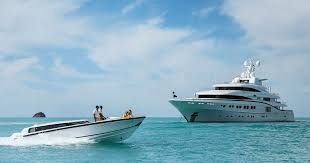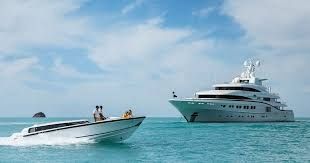Yacht rentals offer a unique way to experience travel, leisure, and adventure on the water whether for a vacation, party, corporate retreat, or weekend getaway. With more accessible rental platforms and customizable options, chartering a yacht is no longer just for the ultra-wealthy. This guide breaks down how yacht rentals work, why they’re becoming popular, the latest developments, applicable laws, and useful tools to help you get started with confidence.
Yacht rentals refer to the practice of leasing a boat typically a luxury vessel for a set period, ranging from a few hours to several weeks. The service may include a crew, captain, food, water sports equipment, and more, depending on the rental type.

The concept exists to meet the demand for luxury experiences, privacy, flexible travel, and marine tourism without the high cost and responsibility of owning a yacht. The rental market caters to various needs from private celebrations to business events to extended cruising holidays across oceans or island chains.
Yachts can be rented for:
-
Day trips
-
Sunset cruises
-
Week-long holidays
-
Event hosting
-
Fishing or diving adventures
Today, platforms make it easier to compare vessels, costs, and routes, giving everyday travelers access to what was once an elite experience.Why Yacht Rentals Matter Today
The yacht charter industry has grown significantly in the past few years, especially as travelers look for unique, socially-distanced, and nature-centric alternatives to crowded resorts or cruises.
Here’s why this trend is important now:
-
Post-pandemic travel shift: Travelers seek private, self-contained vacation options, especially families or groups avoiding large crowds.
-
Rise in experiential travel: People are spending more on memorable experiences rather than just destinations.
-
Accessible pricing models: From bareboat charters to shared group rentals, options now exist for different budgets.
-
Tourism diversification: Countries with coastlines, islands, and rivers are investing in water-based tourism infrastructure.
Who benefits:
-
Tourists looking for new travel experiences
-
Coastal communities gaining from marine tourism
-
Yacht owners monetizing their assets via rentals
-
Travel startups offering online platforms
This shift solves several problems in tourism, such as overcrowding at popular land destinations, limited hotel options during peak seasons, and the growing demand for luxury travel.
Recent Trends and Developments in Yacht Rentals
The past year has seen notable updates in the yacht charter industry, influenced by technology, sustainability, and changing travel behaviors.
Key updates:
-
Online booking growth: Digital platforms like GetMyBoat, Boatsetter, and Click&Boat have reported double-digit growth in users since early 2024.
-
Green yachting: Eco-friendly and electric yachts are gaining interest among climate-conscious renters. Some charter companies now offer solar-powered catamarans and sustainable waste practices.
-
Flexible booking policies: Due to unpredictable travel conditions, many companies introduced flexible cancellation or rebooking options in 2024.
-
More global destinations: Yacht rentals are expanding beyond traditional hotspots (like the French Riviera or Miami) to areas like Southeast Asia, Croatia, and the Maldives.
| Trend | Impact |
|---|---|
| Eco-friendly yachts | Supports sustainability goals, appeals to younger travelers |
| Digital platforms | Easier comparison, real-time availability, and transparent pricing |
| Rise of catamarans | More space and stability, especially for families and groups |
| Crew customization | Renters can now choose chefs, DJs, dive instructors, or photographers |
Legal Guidelines and Regulations in Yacht Rentals
Yacht rentals are subject to various rules and laws depending on the country, the size of the boat, and whether it’s crewed or bareboat (you operate it yourself). Below are some key regulations that often apply across different jurisdictions:
Common Legal Considerations:
-
Licensing requirements:
For bareboat charters, many countries require proof of a boating license or sufficient sailing experience. A crewed charter does not typically need a license from the renter. -
Insurance coverage:
Most rental companies provide insurance for the yacht, but renters may need to pay a deposit or purchase additional liability coverage. -
Safety equipment:
Yachts must be equipped with life jackets, fire extinguishers, distress signals, and other essentials as per local maritime laws. -
Restricted areas:
In some regions, marine protected areas (MPAs) prohibit anchoring or fishing. Make sure your route complies with environmental and navigational regulations. -
Customs and immigration:
International charters crossing country borders require passports and customs documentation for all passengers.
| Country | Notable Rule |
|---|---|
| USA | No license for crewed rentals; coast guard rules apply |
| EU | ICC (International Certificate of Competence) often needed for bareboats |
| Australia | State-based boat licensing laws for operators |
| UAE | Captain and crew must be licensed by local authorities |
Useful Tools and Resources for Yacht Rentals
Whether you're a first-time renter or planning a luxury vacation, these tools and platforms can help streamline the process:
Booking Platforms:
-
GetMyBoat – Global listings with flexible rentals
-
Boatsetter – USA-based with verified boats and captains
-
Click&Boat – Europe-focused platform with private and professional listings
-
Zizoo – Offers filters for crewed, bareboat, or themed trips
Budget and Planning Tools:
-
Yacht charter cost calculators – Estimate rental cost based on location, vessel size, and season
-
MarineTraffic.com – Real-time ship tracking and marina info
-
Navionics app – Navigation, tides, and route planning for bareboat charters
-
Google Maps + Windy.com – Combine weather forecasts with sailing conditions
Tips to Save Time and Money:
-
Book in the shoulder season (pre- or post-peak)
-
Compare full-service vs. bareboat options
-
Confirm fuel costs, port fees, and tipping policies in advance
Frequently Asked Questions (FAQs)
1. Do I need a license to rent a yacht?
If you’re hiring a crewed yacht, you don’t need a boating license. However, if it’s a bareboat charter (you operate it), you may need a recognized certificate depending on the country and boat size.
2. How much does yacht rental cost?
Costs vary widely. A small boat for a day might cost $300–$800, while a week-long crewed charter on a luxury yacht can run from $10,000 to $100,000+, depending on the size, amenities, and location.
3. What’s the difference between a yacht and a catamaran rental?
A catamaran has two hulls, providing more space and stability ideal for families or larger groups. Yachts can be monohulls or catamarans and typically offer more luxury features and crewed services.
4. Can I bring my own food and drinks on board?
Many rentals allow you to bring your own food, but some offer full catering. Always check the terms beforehand some luxury charters require you to use their onboard chefs or pay a corkage fee.
5. Is yacht rental safe for children and pets?
Yes, but it’s important to inform the rental provider. Some boats come equipped with safety nets, child-sized life vests, and pet-friendly rules.
Final Thoughts
Yacht rentals have evolved into a flexible, exciting travel option that caters to different types of travelers from adventure seekers to corporate groups. Whether you're planning a private sunset cruise or a week-long island hop, understanding the basics of chartering a yacht, the laws involved, and recent industry trends helps ensure a smooth and enjoyable experience.
With the right preparation, tools, and awareness of policies, yacht rentals can be both accessible and memorable even for first-timers.

